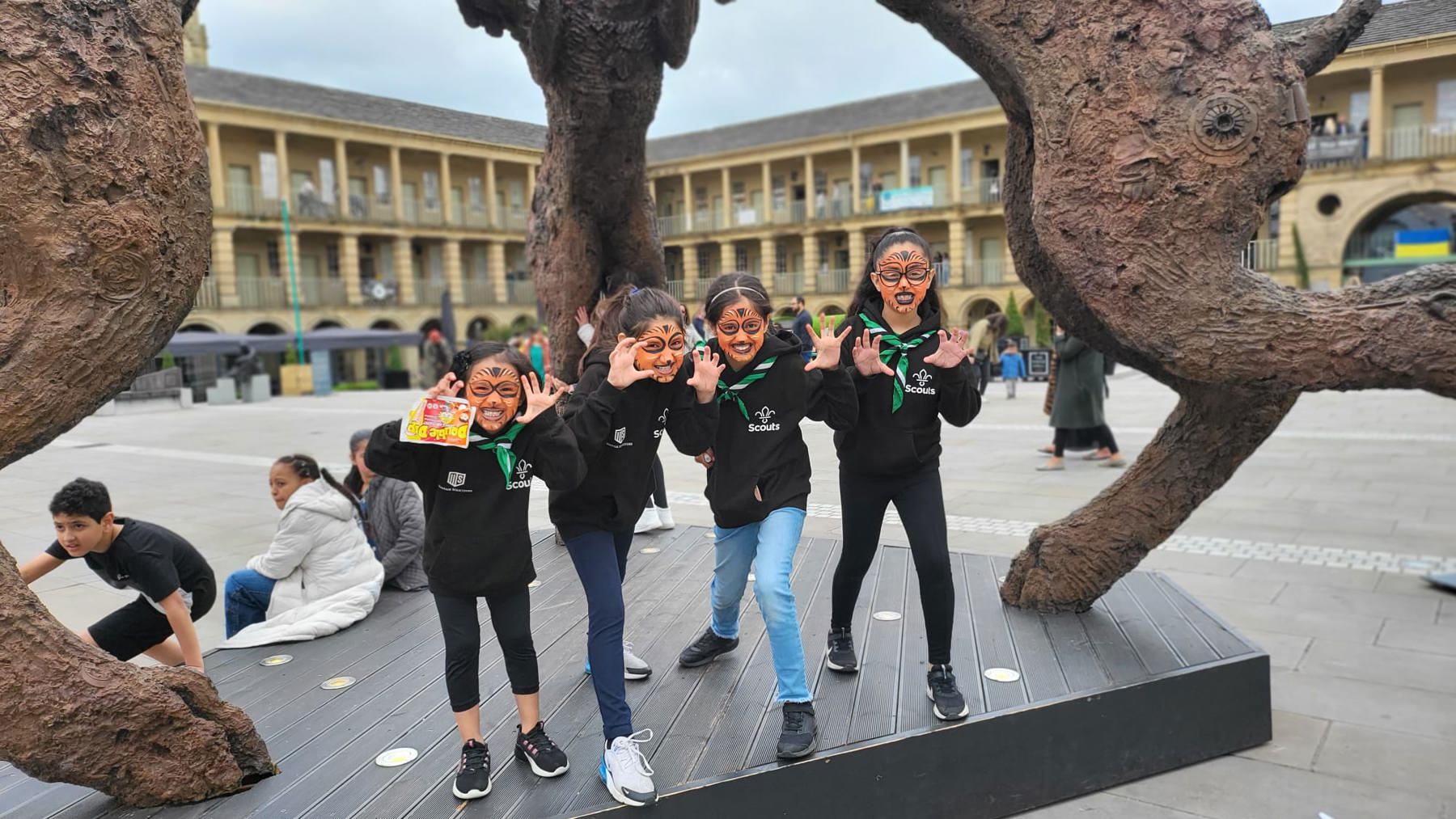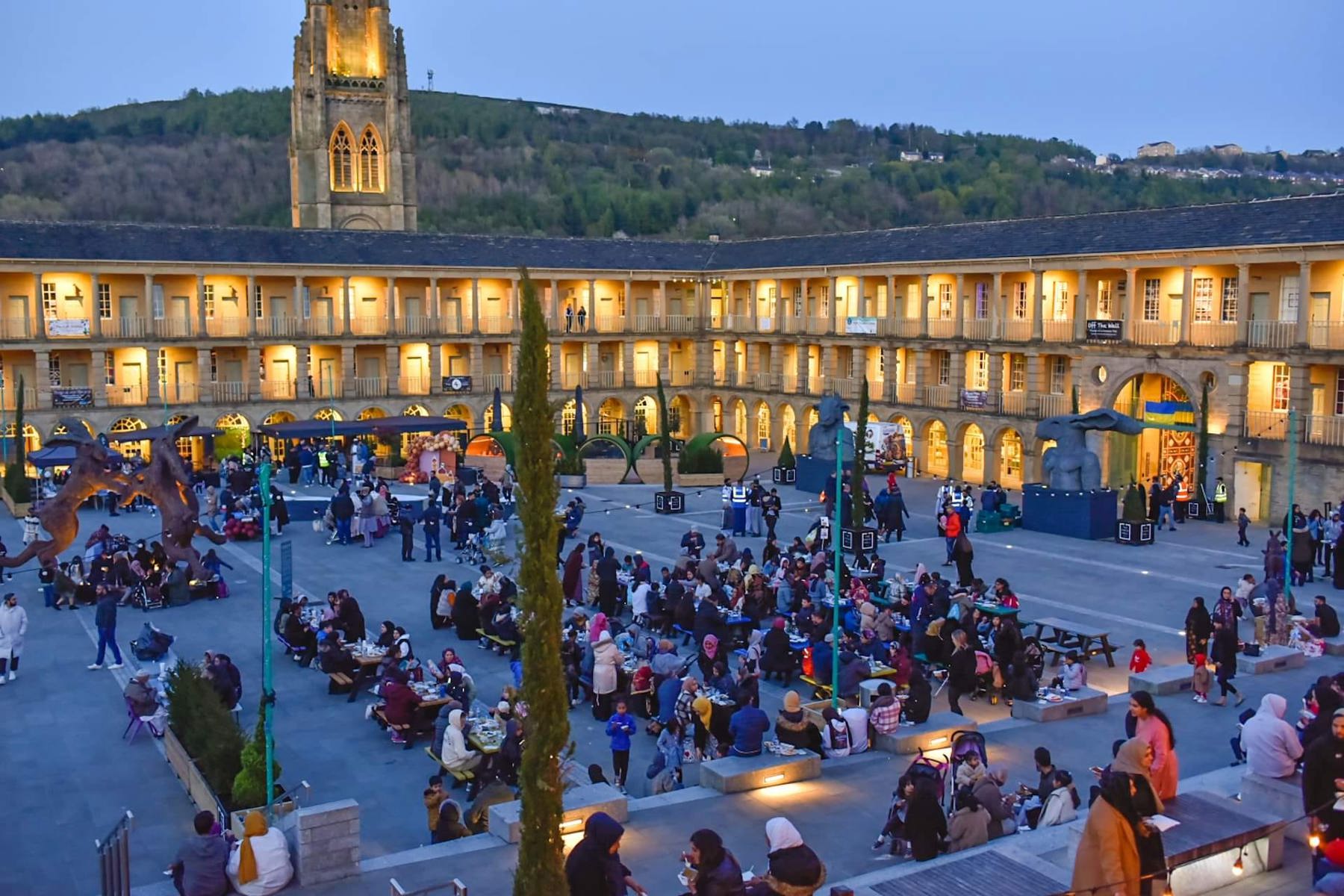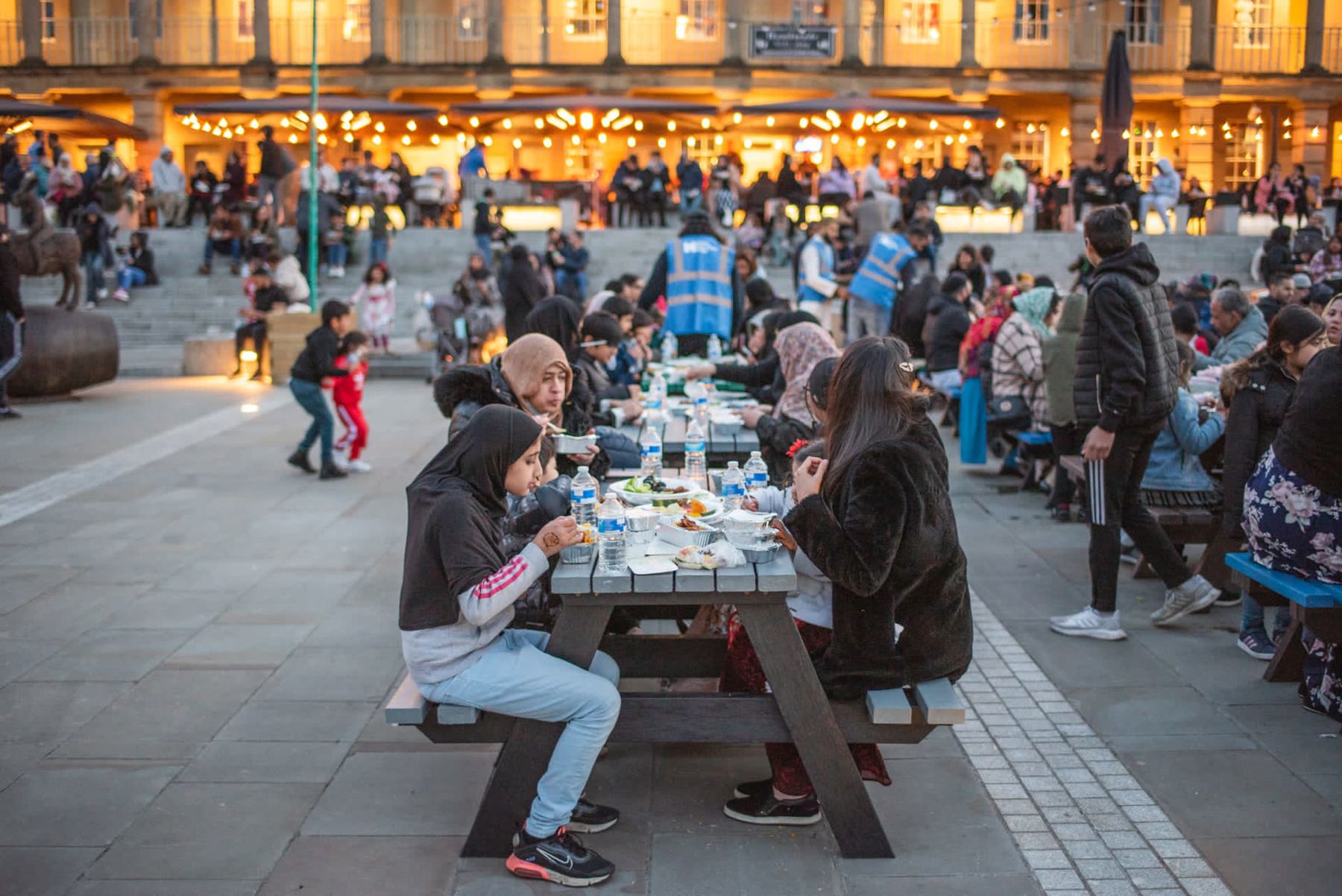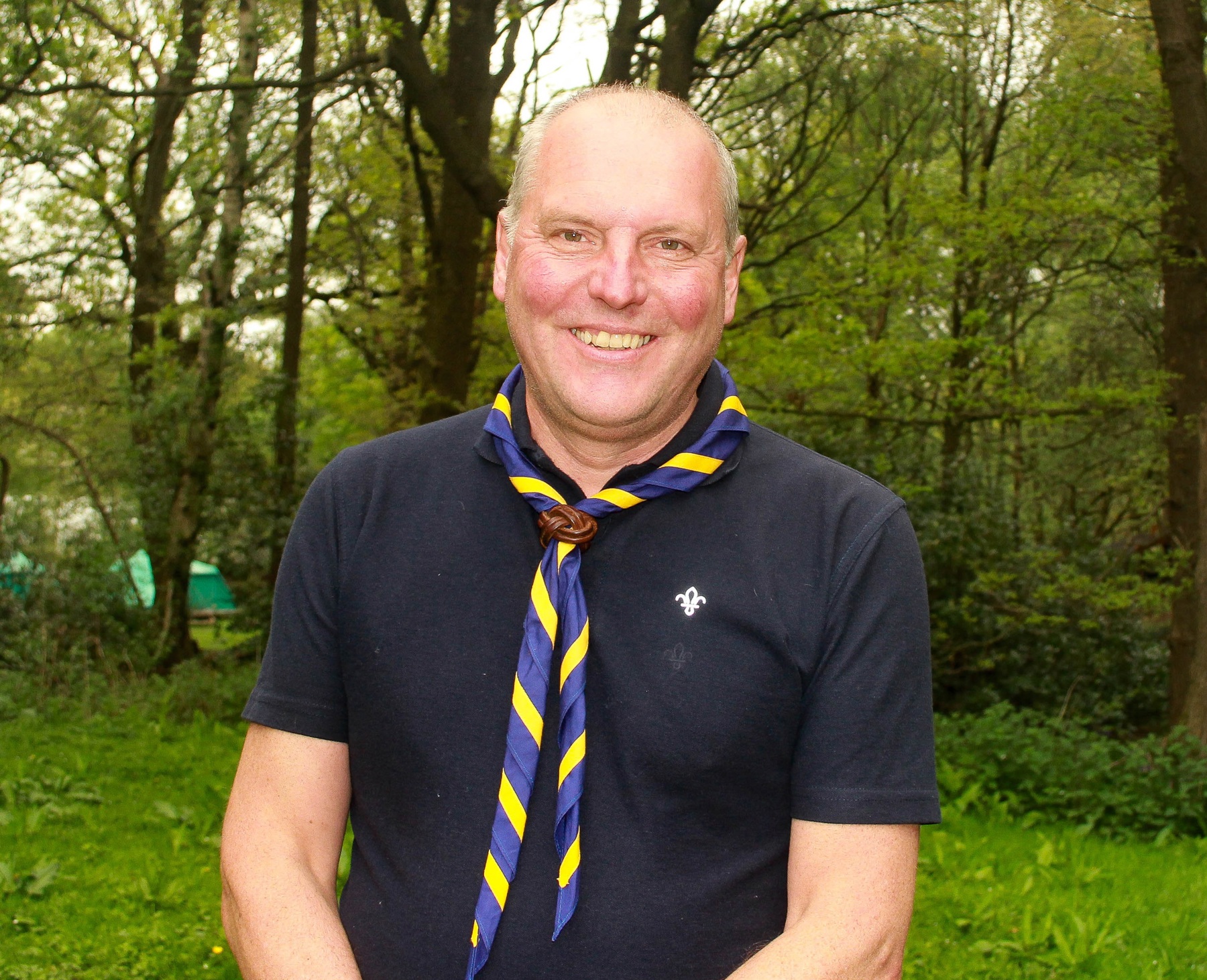Bringing Scouts to new communities
Ian Womersley, County Commissioner for West Yorkshire, shares his team’s experiences and gives encouragement to those starting their own journey in making Scouts more inclusive.

Ian Womersley, County Commissioner for West Yorkshire isn’t afraid to think differently about reaching out to new communities. However, the key to success, he says, is listening carefully first, before adjusting Scouting to meet the needs of communities.
Ian’s Scouts journey
I’ve been in Scouts since I was about 18. I was a Cub Section Leader, Group Scout Leader, then a District Commissioner, before taking on the role of County Commissioner for West Yorkshire nearly three years ago.
Around 12 years ago, our County was approached by members of our local Muslim community looking to set up Scouts for their young people. I was a District Commissioner at the time in West Yorkshire. It was clear that they wanted their young people in their community to gain all sorts of skills for life that we offer in Scouts. The volunteers realised it could offer them, as adults, new skills and opportunities too.
Thinking big, starting small
We started off small, just with Cub Scouts on a Sunday morning. We chose Sunday because the young people attended Madrassa Monday to Friday evening, so this was the only opportunity. The new section sat under an existing Scout Group in Heckmondwike, but operated from a separate community facility as a satellite.
Over 2 years, we rapidly built up from Cubs to Beavers, Cubs and Scouts. We adapted Scouts for the community too, so everyone could be included. The leaders explained that when young people reached Scout section age, most parents and carers preferred boys and girls to do social activities separately. We therefore created male and female scout sections.
The main thing for me was offering continuous support and encouragement around them as their Scout Group grew. We didn’t want them to feel alone and, gladly, they didn’t want to build up their Scout Group alone.
They stayed as part of Heckmondwike Scout Group, and were called Ansaar. This meant they had a ready-made Executive and a Group Scout Leader in place, so they could just focus in on the Scouts programme and delivering the best programme for the young people.
The quality of their programme and preparation was always superb. Being a satellite of an existing Scout Group is such a good thing and I’d recommend it to anyone wanting to start things up in a way that makes it as easy as possible for the new volunteers.
Ansaar now have 6 sections meeting in Heckmondwike and another 3 satellite sections meeting in other buildings.
A flying visit
The group was opened by Wayne Bulpitt when he was UK Chief Commissioner.
Bear Grylls came to see us too, dropping in by helicopter on one of his ‘Bear in the Air’ tours. He showed an immense amount of interest in what the young people and volunteers had to say. I travelled back with him from the campsite to the helicopter, and Bear was very excited, asking lots of questions about how we made it happen.
While all this was going on, the Muslim Scout Fellowship was developing. There was some good learning coming out of the Leicester and Birmingham areas. We also, as a County, started to build other predominantly Muslim Scout Groups that met on a weekend. This included one in Halifax and another in Huddersfield. These were set up as independent Groups, so a different model than the one we used with Ansaar.
How a new Diversity Group is making a difference
One major step we took was setting up a Diversity Group for the county. The focus of the group is on what we need to do as a County to be more accessible and more inclusive. We consider all aspects of diversity, such as race, people with additional needs, people with different beliefs or faiths, and people from low-cost backgrounds.
As a County, we were keen to understand and action on how we can make reasonable adjustments to meet differing needs.
The first meeting of the Diversity Group was so productive. The priority we all agreed on was making sure the local community understood what Scouts was about. To be able to achieve that, you have to be visible and out there, and create a real buzz in the community. For the Muslim Community, we were keen to approach community elders, as well as parents and carers.

The Iftar Under the Stars
One of our Muslim Scouts hosted an Iftar Under the Stars event. The group ran soft archery, crafts, cooking, face painting and, brilliantly, over 1,500 people attended it. We had so many people who approached the volunteers and said: ‘we didn’t even know that Scouts existed for Muslim girls and boys.’
As a result of the event, the group went from 80 on their waiting lists to over 100. Across the County, we now have over 450 young people on our waiting lists for our predominantly Muslim groups, which is a massive challenge for us. We’re working on attracting DCMS funding to expand the size of our buildings.
We’ve been successful with one so far, attracting £75,000 which will give us two extra rooms. Some of our buildings our crumbling, so we’re looking at money to develop them, and set up a second satellite site.
Promoting flexible volunteering
One challenge we’ve found is that volunteers from the Muslim community want to do a really great job as volunteers. It means they might put a lot of pressure on themselves to not want to let anyone down, whether they’re volunteering or thinking about doing so.
However, because of the pressure, sometimes there are not as many volunteers coming forward as we need. But, when they do volunteer, they’re having a fantastic time.
To help, we’re holding a number of volunteering events in close proximity to the Scout Groups to attract more volunteers. We’re having members of the county team running activities, so members of the local Scout team can focus on talking with the parents, carers and adults who come along.
So many groups say they’re struggling for volunteers, we need to remind ourselves just to talk to parents and carers to explain the opportunities available.

‘You can’t be what you can’t see’
One comment I remember from our Diversity Group, which I think that came out of the Basecamp event, was: ‘You can’t be what you can’t see.’
We knew unless we get out there in the community, are seen and create a real buzz, then people won’t realise that Scouts can be for them.
Building trust and confidence is so important. I knew it was no good me going into a community and simply saying they should get involved. We’ve got to excite them about Scouts, and then the demand’s got to come from them. When it does, we provide the support and make the adjustments needed to make Scouts happen for them.
One other challenge we often found when setting up new groups is all the adult volunteers are brand new to Scouts. We realised we needed to have a long term plan of support, such as a programme in a box that will last them 12 months. You also need to provide opportunities for learning.
Therefore, we run an event each year as a county called ‘Grim Up North’. It’s all about hands-on skills and hands-on activities for volunteers to try. The other thing that can help is creating mixed leadership teams with a mix of experienced volunteers and new ones.
An incredible impact
The impact of Scouts on the Muslim community here has been incredible. You get a real excitement from the new volunteers involved for the first time. I remember Bear asking one of our volunteers what she enjoyed most about Scouts. She said: ‘I look forward to my Sunday mornings every week, because I just love what the youngsters get out of it.’
The passion is incredible, and it’s showing in our young people and the opportunities they’re having too. We’ve got young people from these groups going to the Jamboree next year.

Advice for those want to reach out
My biggest piece of advice for anyone wanting to build bridges and reach out to new communities is to be ready to listen. You need to listen to what the community wants and not try to second guess. From there, it’s about working with them, then forming local partnerships with community groups and local service providers.
You also need to wrap your support around new sections that start up. We broke down the jargon, had programme plans ready to go, offered training and really looked after the new volunteers that come in, not just for one term or one year, but beyond. We also identified any volunteers as well who may want to be supported into management roles going forward. We’ve had one volunteer from our Muslim Scout Groups just taken over as Deputy DC, which is fantastic.
The key to success
The key to success is about being able to adjust Scouts to meet the needs of everyone. It’s all very well saying Scouts open to all, but you’ve got to do something about it. We need to make the changes to make sure we’re accessible, available, relevant and inclusive.
That’s what we’ve done by offering Scouts at the weekend, as well as taking the other actions too. We’ve now taking the experiences and learning from working with local Muslim communities to start Scouts and expanding in other areas too. Recently, we’ve been working on offering Scouting in a school for disabled young people and taking Scouting into lower income neighbourhoods.
It’s about having the will to do this work, then the humility, courage and good sense to listen and then work together to make it a reality.